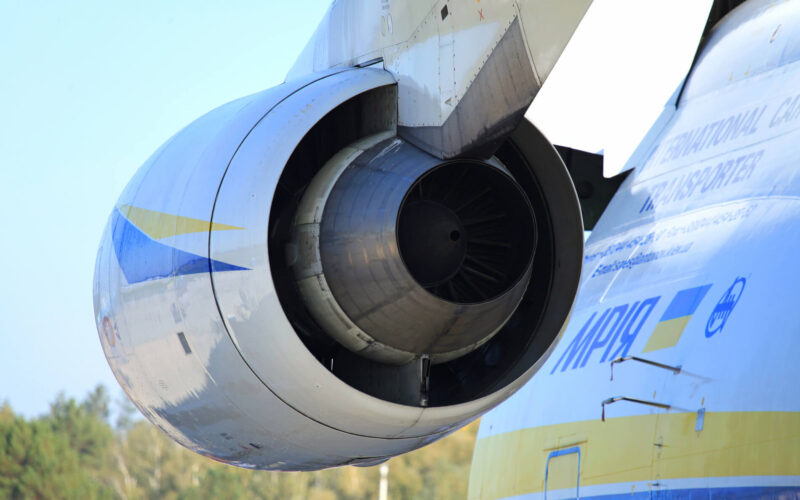Ukrainian President Volodymyr Zelensky signed an order to impose sanctions on the Chinese company Skyrizon and its chairman Wang Jing, who had ambitions to acquire the Ukrainian engine manufacturer Motor Sich. The decision was met with concerns by China’s Foreign Ministry. Investors announced their intention to look for arbitration.
A prized asset of Ukraine’s industrial base
Motor Sich manufactures several engines for Ukrainian and Russian aircraft. Most notably, it produces the Progress D-18 that powers the Antonov An-124 Ruslan and the An-225 Mriya, the world’s largest freighter aircraft. But since the conflict opposing Russia and Ukraine erupted in 2014, the engine manufacturer has been struggling to sell its engines to Russian manufacturers.
The financial struggles have left the company vulnerable. Chinese investors have been attempting to acquire Motor Sich since at least 2017 when a first bid of $250 million was made by Skyrizon. Another attempt was made in 2019. But in both cases, the proposals were rebuked by Ukrainian regulators.
In April 2018, when it came to light that more than half of the shares of Motor Sich had been acquired by Chinese investors throughout the years, the trading of the engine maker’s shares was frozen by the Ukrainian authorities.
The insistence of Skyrizon worried officials in the United States, who saw the move as a way for China to secure vital manufacturing capabilities for its aerospace and military industry. As it stands, the Chinese industry lacks the know-how to produce engines powering large aircraft. To develop a widebody aircraft such as the CR929, COMAC had to turn towards Russian companies. Motor Sich also developed several engines, such as the MS400, to equip cruise missiles.
In August 2020, then-US Secretary of State Michael Pompeo openly voiced his “concerns regarding malign PRC (People’s Republic of China) investment in Ukraine, including Beijing’s efforts to acquire the Motor Sich engine manufacturer.”
President Zelensky: “Not during my term”
With the US presidential elections coming up, some feared that Skyrizon would have a window to make yet another push. That was until January 29, 2021, when President Zelensky signed presidential decrees sanctioning Wang Jing, Skyrizon, and three other companies that showed interest in acquiring Motor Sich. “We do not have the right to sell a controlling stake in the management of strategic defense enterprises of Ukraine to any country,” Zelensky said in an interview with HBO. “During my term, this will not be the case.” Sanctions should apply for three years, during which the parties will not be able to hold any stakes in a Ukrainian company.
It should be noted that two weeks before the Ukrainian sanctions, the US Department of Commerce had imposed a similar investment ban on several Chinese companies linked to the Chinese military, including COMAC and Skyrizon.
On January 31, 2021, Ukraine’s State Security Service (SBU) raided a Motor Sich shareholder meeting, initiated by Chinese investors and Ukrainian businessman Oleksandr Yaroslavsky. The SBU feared that a change of board would take place to allow strategic assets and technologies to be transferred outside of Ukraine.
On February 1, 2021, China’s Foreign Ministry reacted and called on Ukraine to protect the rights of Chinese companies and investors. “China has always opposed foreign countries imposing unilateral sanctions on Chinese companies,” said Chinese Foreign Ministry spokesman Wang Wenbin. At the same time, we always require Chinese companies to operate abroad within the law.” Chinese investors have now filed an international arbitration claim to recover $3.5 billion from Ukraine.
Retaliatory sanctions could have deep consequences for Ukraine’s economy, as China has become its main export partner in recent years. In 2020, Ukrainian exports amounted to $49.2 billion, out of which $7.1 billion went to China, mainly in the form of ores and agricultural products.

